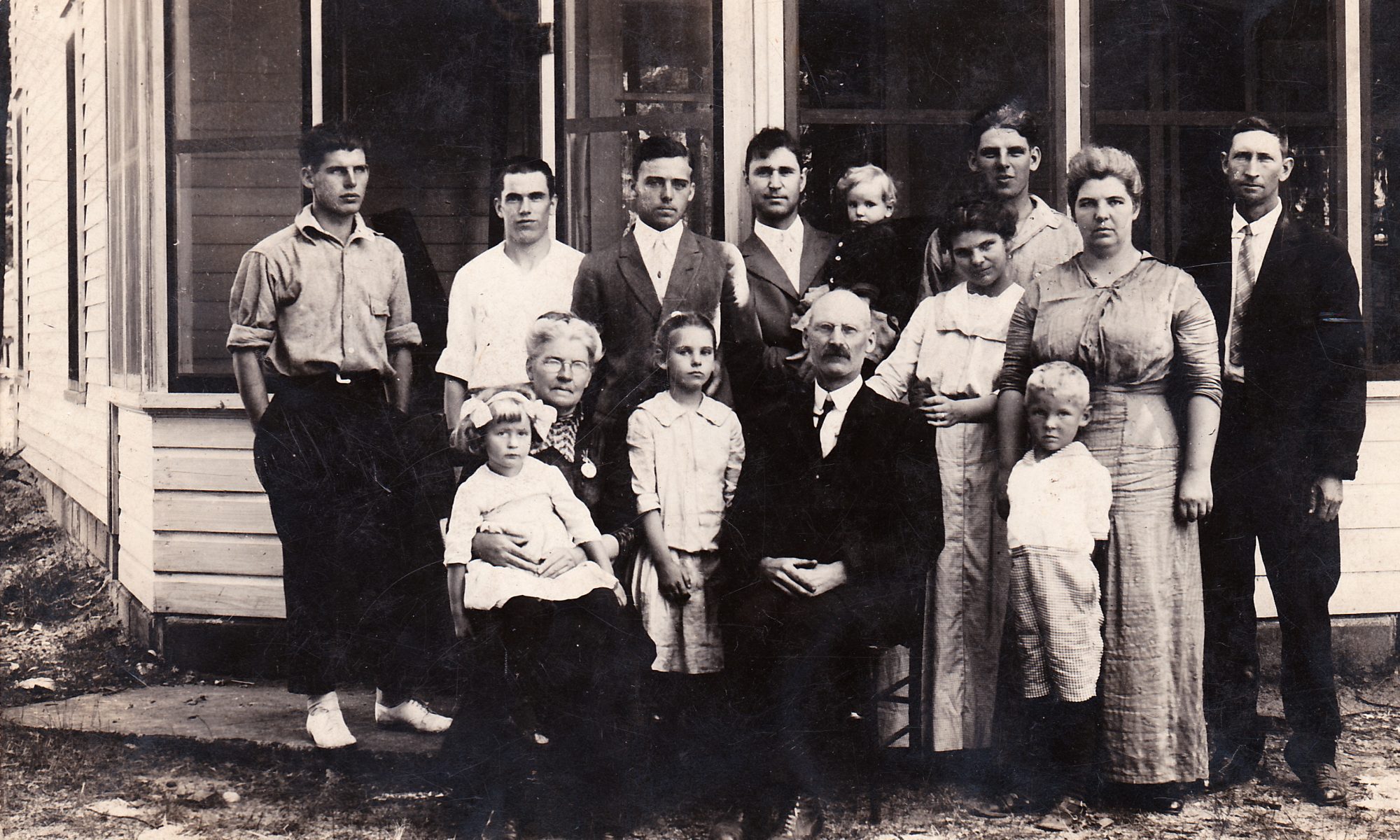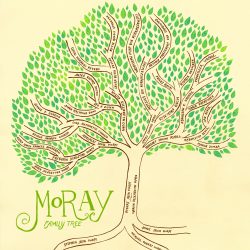Let’s try this again. Once again Amy Johnson Crow has issued her 52 Ancestors in 52 Weeks challenge. Once again I am going to try and participate. Last year didn’t go so well for me…I only made it a few weeks. So this year I’ve made my goal a little more realistic for me. Instead of one ancestor a week, I’ll try for one every 2 weeks or so. My goal is 25 ancestors for the year. Even with those lowered expectations, I barely got this one done in the 2+ weeks I’ve been working on it. But we’ll hope for the best. Up first, one Mr. Michael Hagaman, 4th great grandfather.
The first record we have of Michael Hagaman is on the 20th of October, 1820 when he is named in the minutes of the Providence Monthly Meeting of the Religious Society of Friends, or as they are more commonly known, Quakers. Michael was requesting to be admitted to the meeting as a new member. At the next monthly meeting, on November 21, Michael was accepted as a member. Quite soon after, in the 24th of April, 1821 Providence Monthly Meeting minutes, Michael and Sarah Cope have announced their intention to marry, and are soon married on the 24th of May, 1821. The marriage so soon after his admittance to the group makes me suspect that Michael may have only joined the Quakers for the sole purpose of wedding Sarah. More evidence of his perhaps not so honest intentions shows up later on as well. Months later, in November, 1821, Michael and Sarah left the Providence Monthly Meeting in Fayette County, Pennsylvania for Westland Monthly Meeting in Washington County, Pennsylvania where Sarah’s grandparents, John Co(o)pe and Mary Dickinson, were early members. Half a year later, they rejoin the Providence Monthly Meeting. I’m not quite sure the reasons for the move away and back again. The counties are adjacent to each other, however, so even though they may have switched meetings, it’s very possible they may not have actually moved their home.
Fast forward four years; more evidence that Michael may not have been all that committed to the Quaker ideology is found. He is censured and removed from the Society of Friends due to bad behaviour. His rebuke reads thusly:
Michael Hagaman has declined the attendance of our meetings, has been intoxicated with spiritous liquors and is charged with disreputable conduct towards his neighbors wife therefore after endeavouring to extend the necessary care according to discipline and he not appearing qualified to condemn the same we exclude him from a right of membership, with our society until by application he may be reinstated.
Interestingly, Sarah (who was born into the Society of Friends, and had a long lineage therein) continued on as a member, as did the children. Not only that, but Michael and Sarah stayed married. I wonder what the Friends thought of the woman who was married to an lapsed member, who apparently never rejoined the fold.
Luckily, the Quakers are great record keepers, and so the baptisms of all of Michael and Sarah’s children are recorded. Their first child, Ruth, was born in 1822. Maria in 1824, Isaac C. (likely named after his grandfather Isaac Cope) in 1826, and Anna in 1828. Michael “Hagerman” (a common alternate spelling) is listed in the 1830 Federal Census living in Washington Townhip, Fayette County, Pennsylvania. There is one male 20-29 (himself), one male under 5 (Isaac), one female 20-29 (wife Sarah), two females 5-9 (Ruth and Maria), and one female under 5 (Anna) listed in the household. A likely brother “James Hagerman” (20-29) is listed next door. Michael’s younger children John, Joseph, and Sarah were born between 1830 and 1840. In the 1840 Federal Census, Michael is found in neighboring Jefferson Township, also in Fayette County. There is one male 40-49, one male 10-14, and one 5-9, one female 40-49, two 15-19, one 10-14, and one under 5. Enumerated nearby are in-laws Samuel, Israel, Jesse, and Amos Cope.
By 1850 Michael and Sarah have had their last children, Martha (late 1840), and the youngest, my 3rd great grandmother Rachel (1843). They had also moved west to Marlboro, Stark County, Ohio. In the 1850 Census, Michael Hagaman, a shoemaker, is listed with Sarah (50), John (19, Shoemaker), Joseph (17, Shoemaker), Sarah (13), Martha (11), and “Rachael” (6).
By 1860, Michael has moved even further west, to Amboy Township, Hillsdale County, Michigan. He is 60 years old and his occupation is now “farmer”. His wife Sarah (60), and daughter Rachel (16) are still in his household, as is a “Michael Reeder” (13), most likely the son of neighbor John Reeder. Various relations can be found nearby. Isaac Hagaman and family, Ellis Cope, and John and Riverius Covey (the Coveys being relations of Rachel’s future husband, Frederick Sanderson).
According to the transcription of his headstone on his Find A Grave memorial page, Michael died April 21, 1868. Though he was kicked out of the Quakers, a religion that kept strict rules on marrying outside the faith, and had also apparently done *something* with his neighbors wife in the 1820s, Sarah stayed with Michael for the rest of his life.





